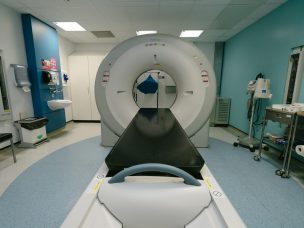Prostate Cancer
Psychosocial and Medical Prostate Cancer Disparities
Prostate cancer disparities have been well documented, and this study analyzes the way they manifest in the emotional and psychosocial lives of patients who have already undergone treatment, as well as their partners. Disparities in prostate cancer outcomes are caused by a variety of factors and result in a variety of different effects, including effects...
Racial Disparities in Prostate Cancer Outcomes: What We Know
Black men have historically faced worse outcomes from prostate cancer, and this study provides a meta-analysis of past research on this topic in order to discuss ways to move forward. Prostate cancer is the most common type of cancer diagnosed in men in the United States. Although there have been advancements made in the screening...
Role of Darolutamide in Black/African-American Prostate Cancer Patients
Darolutamide was well-tolerated by Black/African-American patients, and similar safety profiles were observed across the overall trial group. Prostate cancer (PC) is the most common cancer among men in the United States (US) and is the world’s second most common cancer after lung cancer. Furthermore, PC is associated with a high incidence and mortality rate in...
Use of Omega-3 Fatty Acids With MAG-EPA After Radical Prostatectomy
Long-chain omega-3 fatty acid (LCn3) with MAG-EPA improves urinary irritation and bowel function in patients treated with radical prostatectomy. Prostate cancer is a highly prevalent cancer that can negatively affect patients’ quality of life. Radical prostatectomy is a common treatment for intermediate- to high-grade prostate cancer, but it often has side effects such as sexual...
Effect of Weight Loss in Prostate Cancer Patients
Weight loss improved intestinal permeability in prostate cancer patients who followed a low-carbohydrate diet. Evidence indicates that gut microbiota may influence urologic health, including prostate cancer (PC), possibly via influencing intestinal permeability (IP). According to several studies, diet changes and weight loss may improve IP. The Carbohydrate and Prostate Study 2 (CAPS2) clinical trial demonstrated...
Acute Exercise Effects on Tumor Outcomes in Localized Prostate Cancer
Medically reviewed by Dr. Samuel Sarmiento, M.D., MPH on August 3, 2023 A single session of physical exercise is inadequate to alter tumor hypoxia or NK cell invasion in patients with prostate cancer. Studies have reported that high levels of physical activity are associated with a lower risk of cancer recurrence and improved survival, suggesting...
Quality-of-Life and Toxicity Profile After Stereotactic Body Radiation (SBRT) for Radical Prostatectomy
Physician-scored toxicity and patient-reported outcomes showed SBRT is well-tolerated post-prostatectomy. Postoperative radiation therapy (RT) is an underutilized standard of care intervention for prostate cancer patients with recurrence/adverse pathologic features following radical prostatectomy. Although stereotactic body radiation therapy (SBRT) is a well-researched and convenient alternative for definitive treatment, data on its use after prostatectomy are exceedingly...
Prostate MRI versus PSA Screening for Prostate Cancer Detection
Biparametric prostate MRI reduces biopsy rates more than PSA screening alone and detects clinically relevant prostate cancers that PSA screening misses. The prostate-specific antigen (PSA) blood test is still used for prostate cancer screening after randomized clinical trials showed a reduction in prostate cancer mortality rates. Several serological and imaging techniques have been explored to...
Reminiscence Therapy‑Based Care Program for Surgical Prostate Cancer Patients
A reminiscence therapy-based care program reduces anxiety and depression and enhances life quality in surgical prostate cancer patients. Prostate cancer, characterized by dysuria, urinary leakage, and erectile dysfunction, is the second-most frequent cancer in men worldwide, with estimations of more than 1.4 million new cases and 375,000 new deaths reported in 2020. According to reports,...
More Medical News














